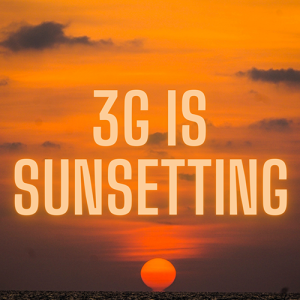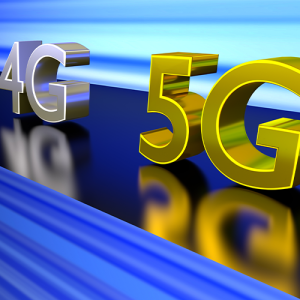
Vodafone becomes the first UK network to announce their 3G service will cease in June 2023. We often find ourselves bidding farewell to older technologies to make way for newer and more advanced ones. This is the case with 3G cellular networks. As we embrace the era of 4G and 5G, it’s time to reflect on the impact of 3G and acknowledge the role it played in shaping our digital world.
The Popularity of 3G: When 3G (third generation) technology was introduced in the early 2000s, it brought with it a giant leap in mobile communication. It marked the beginning of a new era, allowing users to access the internet, send multimedia messages, and make video calls, revolutionising the way in how we interacted with our mobile devices.
The Impact of 3G: The introduction of 3G networks facilitated numerous advancements and changed numerous sectors. It gave companies the ability to provide mobile services and applications, causing the app economy to flourish. We now live in a mobile society that includes everything from social media and entertainment to banking and commerce. 3G paved the path for this.
3G brought newfound convenience and connectivity. It allowed us to stay in touch with loved ones, regardless of our location, and provided access to information and entertainment on the go. It transformed the way we consumed media, with music and video streaming becoming increasingly ubiquitous.
Challenges and Limitations: Even while 3G changed the game, it had certain drawbacks. Even if they were important at the time, the network speeds were still considerably slower than what we have now with 4G and 5G. Due to this restriction, 3G networks could not support several data-intensive apps and services like high-definition video streaming and seamless online gaming.

Make Way For 4G and 5G: With the introduction of 4G LTE (Long-Term Evolution) and now 5G networks, the mobile landscape has advanced even further. These technologies offer significantly faster speeds, reduced latency, and improved network capacity, enabling a wide range of applications, such as augmented reality, virtual reality, and autonomous vehicles.
The Impact on Legacy Devices: As 3G networks are phased out, it is important to note that many older devices, from a consumer’s standpoint such as early-generation smartphones and feature phones, may no longer be compatible with the newer 4G and 5G networks. From an IoT standpoint, Modems and Routers are critical for the transition to this change as operations simply cannot afford to have “downtime”. This change underscores the importance of regularly updating your devices to ensure they can keep up with the evolving
cellular technology.
Conclusion: The sunset of 3G marks the end of an era in cellular technology. It’s a moment to reflect on the significant impact 3G had on our lives and the pivotal role it played in shaping our digital world. As we bid farewell to 3G, we can look forward to the limitless possibilities that lie ahead with faster and more advanced connectivity technologies. The transition to 4G and 5G opens doors to a future filled with innovation, connectivity, and even greater digital transformation.
If you require assistance upgrading from 3G technology then Siretta has an ever increasing range of LTE and 5G products so please visit our website at www.siretta.com or submit an email enquiry to [email protected]

